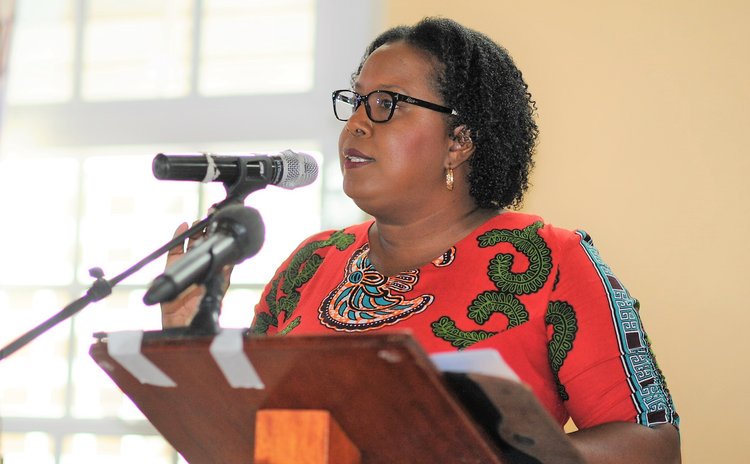Women Farmers Learn To Speak Up: Anticipate increased assistance after an intense programme

Ten women farmers from the rural areas in Dominica will be the first in their field to participate in a United Nations Development Programme (UNDP) funded, UWI Open Campus supported programme to help them better advocate for improvement in agriculture.
The public speaking and professional presentation programme is offered by the University of the West Indies (UWI) Open Campus twice a year; however, this is the first time the participants will be all female farmers.
Head of the UWI Open Campus, Dominica branch, Dr. Kimone Joseph, told The Sun that UWI's role in that programme "is to train the women who are participating in public speaking and professional development skills."
The ultimate goal is to prepare these farmers to competently represent themselves with issues of lobbying, issues of grant proposals, and pitching their ideas for additional funding in the future. This also encompasses helping the women with marketing the variety of products that come from their farms.
"What we notice is that people are very competent in their particular fields," Joseph said. "So we expect the women farmers will know so much about their crops and products. But the issue comes with being able to explain that to other people when you are seeking funding."
This programme by the UNDP and UWI is by no means a novel idea to help boost the role of women in agriculture. Over the years several institutions have organized and executed workshops, training sessions, and seminars, placing emphasis on women in agriculture. These activities form part of a greater movement to help build resilience in the sector and empower women farmers to claim their stake in the agriculture industry.
In addition to helping solidify funding, the confidence in representing themselves will also help the women farmers in explaining why they do what they do. This is deemed extremely useful in expanding their markets, according to Joseph.
"Just being able to explain to someone else can be difficult if you are not trained in effective public speaking and professional presentation skills," she said.
This programme, being held virtually by UWI, is also a first for the university in that it was approached to help in that specific capacity building area: training for public speaking and professional presentation skills. This course is usually offered multiple times a year and is generally utilized by various companies and business places.
"I think what is unique about the women farmers is that much like the UNDP programme that we had helped with a couple of years ago about sustainable agriculture, this one is really giving an opportunity for this group of women to be fully engaged in tertiary education, to get access to the UWI and its training," Dr. Joseph said.
UWI makes up part of the top 1.5% of all universities and colleges around the world, hence participants in this course are getting to train with the best-of-the-best and that is considered a tremendous feat. Dr. Joseph believes the other advantage to taking part in this course is the opportunity for the farmers to be together in a group setting and learn from each other.
The ten women farmers in this course are from the Central Universal Farmers Group – which includes people with farms in the central region such as Despor, Corona, Sylvania, and Sultan – and the Belles Women Farmers Group.
A criteria framework was developed in order to choose the groups and women to benefit from this programme. The questions were sent out to six farmers groups and based on the scorecard used, these two groups scored the highest. Questions on the framework sought out information such as whether or not the group was legally registered, the group's percentage membership of women, and whether or not the organization had a group product or project.
The course, which started in mid-November is scheduled to end in late December.




